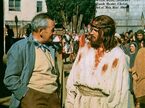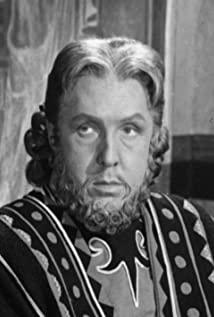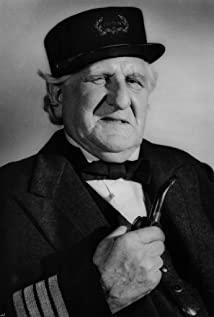The 1959 epic "Ben-Hur" was adapted from the novel "Ben-Hur, A Tale Of The Christ". The author of this novel is a famous general during the American Civil War named Lew Wallace. At the time, he had planned to co-write a book with his friend Ingersoll, in an attempt to root out the mysteries of Christianity and debunk Jesus as the "Son of God". Wallace spent more than two years researching this in several prestigious libraries in Europe and the United States. But when he was about to write the second chapter, he suddenly knelt down and shouted to the statue of Christ, "My Lord! My God!" It turned out that he found that all the evidence he had found about the deity of Christ was conclusive. He could no longer deny that Jesus Christ was "the Son of God." So Wallace wrote a book—the most famous novel about the age of Christ.
From this anecdote, we can see that the creative process of the original novel of this film is the process of a person being conquered by Christian teachings, so the content of this film closely focuses on how the protagonist Ben-Hur is "invisible". "The guide came to Jesus and was baptized by the blood of Jesus to complete the process of self-redemption. The purpose of the film is not to explain Christian doctrine from the outside to the interior, but to complete the conquest of faith from the inside to the outside through Ben-Hur's life course. In order to make it easier for the audience to accept, the bright line of this film is a series of ups and downs of Ben Hur, the son of the Jewish nobleman, after the Romans occupied Jerusalem, and the dark line is the salvation of Jesus. Although it is impossible to see the appearance of Jesus from the beginning to the end of the film, only the back, profile and perspective, and even when people refer to him, they are often referred to as "that person", but the two encounters between him and Ben Hur were given to him respectively. The courage and hope of life brought Ben-Hur back from the brink of physical collapse and the brink of psychological collapse twice. From this, a question arises - why does God always give us a back? Or, why does the director think that God only leaves people with a back? Perhaps he wants us to think that every kind person we meet is God; and that he also gives each of us the opportunity to be a son of God.
Ben-Hur seems to make itself a very close "supplement" to the biblical text. What is special about this addition is that the biblical text takes us to see Jesus through the eyes of the disciples, who are the protagonists in other parts of the Bible. The director of "Ben-Hur" gave the film the story and atmosphere of the disciples like "Bible". Its protagonists are Ben-Hur and his family. "Ben-Hur" focuses on telling the heart of an individual. The plot, metaphorically speaking, can be said to be the collision of the world and the soul, the collision of hatred and forgiveness, love and redemption - which finally converge in the crucifixion of Jesus Christ to become climax, and everyone is released in this experience. The screenwriter mocked the Jewish gospel through the mouth of the Roman Empire officials in the film: the new scholar actually preached that God is in everyone. In my opinion, this sentence actually expresses the Christian gospel, which is that faith, hope, and love exist (dwell) in our body (the Holy Spirit), and each of us can live out the likeness of God. This is soul-shattering news, and one can understand the incredible impact Jesus' words had on priests and Pharisees. It breaks through this desperate world and the religious institution that has made peace with the world.
The truth in Ben-Hur's film actually brings us an "overlapping story" that is separated from the reality of the film, that is, Ben-Hur represents that our minds are close to the era in the movie, and that era and this era, Because Jesus met by heart, in fact, he has never been separated, and he will never fall behind. Whether there are Moses in history or a fictional Ben-Hur, those who follow God were originally driven out, despised, and incompatible with this world, and they are also unworthy people in this world. They belong to the kingdom of Jesus.
All the huge scenes with computer special effects are true epic grand human charm. The handling of emotional scenes is so delicate and real, and the experience of time makes this film like tasting a glass of wine with a long aftertaste.
With the advent of the fast food era, we are faced with so many cultural choices, and sometimes there is a lack of careful characterization and adherence to beliefs. I don't know how much of the film made now will remain in the hearts of the world after 50 years...
View more about Ben-Hur reviews











